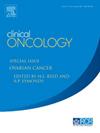肿瘤学中的因果推理:为什么、做什么、怎么做、何时做
IF 3.2
3区 医学
Q2 ONCOLOGY
引用次数: 0
摘要
本文章由计算机程序翻译,如有差异,请以英文原文为准。
Causal Inference in Oncology: Why, What, How and When
Oncologists are faced with choosing the best treatment for each patient, based on the available evidence from randomized controlled trials (RCTs) and observational studies. RCTs provide estimates of the average effects of treatments on groups of patients, but they may not apply in many real-world scenarios where for example patients have different characteristics than the RCT participants, or where different treatment variants are considered. Causal inference defines what a treatment effect is and how it may be estimated with RCTs or outside of RCTs with observational – or ‘real-world’ – data. In this review, we introduce the field of causal inference, explain what a treatment effect is and what important challenges are with treatment effect estimation with observational data. We then provide a framework for conducting causal inference studies and describe when in oncology causal inference from observational data may be particularly valuable. Recognizing the strengths and limitations of both RCTs and observational causal inference provides a way for more informed and individualized treatment decision-making in oncology.
求助全文
通过发布文献求助,成功后即可免费获取论文全文。
去求助
来源期刊

Clinical oncology
医学-肿瘤学
CiteScore
5.20
自引率
8.80%
发文量
332
审稿时长
40 days
期刊介绍:
Clinical Oncology is an International cancer journal covering all aspects of the clinical management of cancer patients, reflecting a multidisciplinary approach to therapy. Papers, editorials and reviews are published on all types of malignant disease embracing, pathology, diagnosis and treatment, including radiotherapy, chemotherapy, surgery, combined modality treatment and palliative care. Research and review papers covering epidemiology, radiobiology, radiation physics, tumour biology, and immunology are also published, together with letters to the editor, case reports and book reviews.
 求助内容:
求助内容: 应助结果提醒方式:
应助结果提醒方式:


